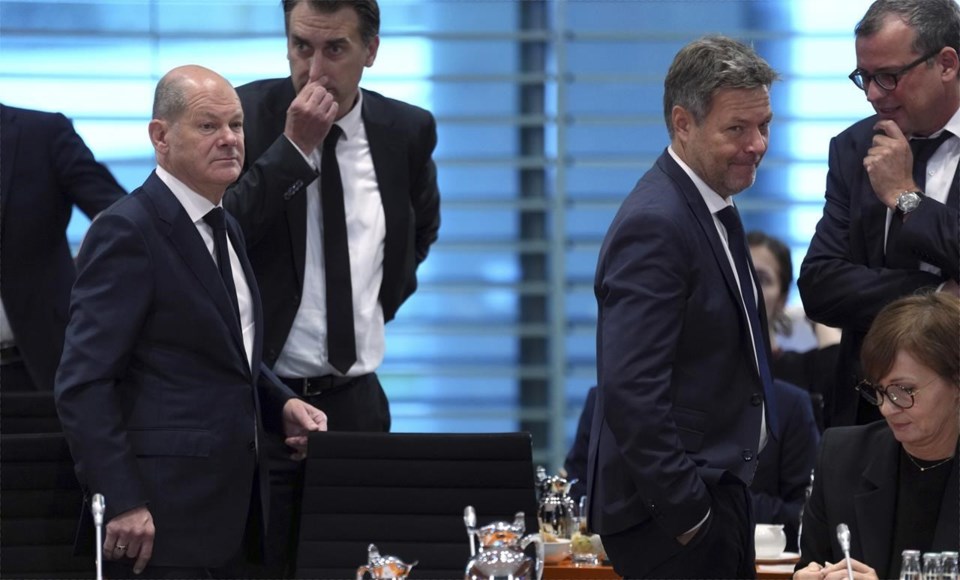BERLIN (AP) — Senior members of Germany's environmentalist Green party indicated Tuesday that they would accept Chancellor Olaf Scholz's decision to extend the lifetime of the country's three remaining nuclear plants for a few months to head off possible a winter energy crunch.
The reactors were long scheduled to be switched off at the end of the year, but Economy Minister Robert Habeck agreed to let two plants run until mid-April amid the energy disruptions caused by Russia's war in Ukraine. Some members in Germany's government insisted that all three reactors should stay online until 2024, prompting a Cabinet spat that Scholz overruled on Monday.
Habeck told public broadcaster ZDF that the plan was “one I can work with, one I can live with.”
Scholz made clear Tuesday that he considers the decision final.
“On April 15, it’s over for nuclear power plants in Germany,” he told reporters in Berlin. “That means there also won't be any more fuel rods produced for German power plants.”
Some of the plants might use up their fuel before mid-April, he noted. “It depends what's left in the fuel rods.”
The Greens' chairman, Omid Nouripour, welcomed the fact that Scholz's decision ends debate within government about the future of nuclear power in Germany.
“That's good,” he tweeted.
Still, Nouripour said the third reactor, Emsland in the northwest of the country, wasn't required to safeguard Germany's power supply. Experts have made a similar case, arguing that the north of the country has so much wind power it doesn't need nuclear energy.
An alliance of anti-nuclear groups in the Emsland region slammed Scholz's decision. They said the aging reactor poses a considerable risk, noting that it hasn't undergone periodic safety inspections for years.
The groups said they plan to stage protests against the decision in the coming weeks.
___
Follow all AP stories on climate change issues at https://apnews.com/hub/climate-and-environment.
The Associated Press



